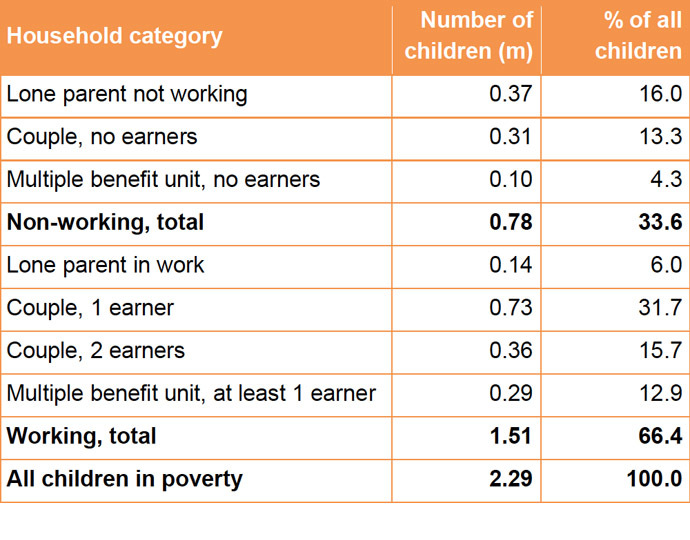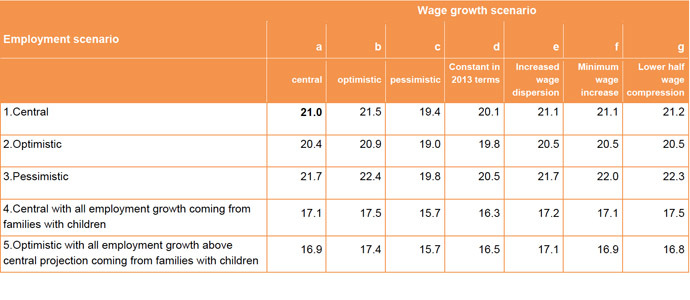3.5 mln UK children will live in ‘absolute poverty’ by 2020 – children's watchdog
especiales

The response to UK draft Consultation on the Child Poverty Strategy 2014-17, was published Monday by the Social Mobility and Child Poverty (SMCP) Commission.
Study shows that 3 in 4 UK students will be repaying loans into their 50s
London to cut £180m-a-year hardship fund for low-income families
“The government’s draft child poverty strategy is a missed opportunity,” said Alan Milburn, the chair of the commission. “The farce of ministers proving unable to agree on how to measure poverty after rubbishing existing measures is particularly lamentable.”
Milburn added: “The gap between the objective of making child poverty history and the reality is becoming ever wider.”
In its analysis, the commission details how the UK government is failing to address child poverty. Among the “missteps” are “a lack of any clear measures to assess progress,” the “absence of a step-by-step plan for meeting the targets” and a “failure to engage with independent projections that poverty is set to increase substantially.”

The government has only taken “limited action to get other parts of society engaged in tackling poverty with only tentative steps being taken to guide the efforts of others – such as employers – in delivering a low poverty society,” the commission said.
However, the watchdog did note some good points in the government’s strategy, including boosting childcare support for families with low incomes as well as better understanding a problem of working poverty.
A report says that 34,600 kids aged 10-17 in uk convicted of crime in 2013
However, the commission said that the government’s measures would neither reduce child poverty, nor prevent its inexorable rise.
The research throws down a challenge to all the political parties “to set out detailed plans for how their shared ambition of reducing – and ending – child poverty can be achieved,” says the commission.
The children rights body is urging ministers “to revise its draft and develop a step-by-step plan for how the 2020 targets will be met.”

“Politicians from all parties say they are committed to the 2020 targets. Willing the ends without the means today merely becomes a broken promise tomorrow,” Milburn said. “Across the political spectrum, party leaders now need to come clean about what they plan to do to hit the targets, or what progress they can deliver if they expect to fall short.”
Parental employment can reduce child poverty
The commission has backed its analysis with its another research published in June dubbed “Understanding the parental employment scenarios necessary to meet the 2020 Child Poverty Targets” saying that many parents would have to find work in order to reduce child poverty.
“Child poverty in 2020 … will be 21 percent – 3.5 percentage points higher than in 2011-12,” says the study, adding that “even in the most optimistic scenarios for parental employment and earnings growth ,… the target for relative poverty is a long way from being met.”

The only way to fight child poverty for the country will be assuming “an extreme increase in employment rates for adults in households with children,” the paper said.
Below the breadline: charities provided more food in UK than in 2013
Another report released by Oxfam, Church Action on Poverty and the Trussell Trust which aimed is to find solutions to poverty, says that food charities provided more than 20 million meals in 2013-14 to people in the UK who could not afford to buy a proper meal. The figures show at least a 54 percent increase since 2012-13.
“More than half a million children in the UK are now living in families who are unable to provide a minimally acceptable diet,” says the research. “There is no evidence to support the claim that increased food aid provision is driving demand.”
According to the paper, the UK authorities “must first commit to really understanding and monitoring the true scale of this problem, then set out ambitious steps to tackle it.”


 Screenshot from Oxfam, Church Action on Poverty and the Trussell Trust report
Screenshot from Oxfam, Church Action on Poverty and the Trussell Trust report










Add new comment